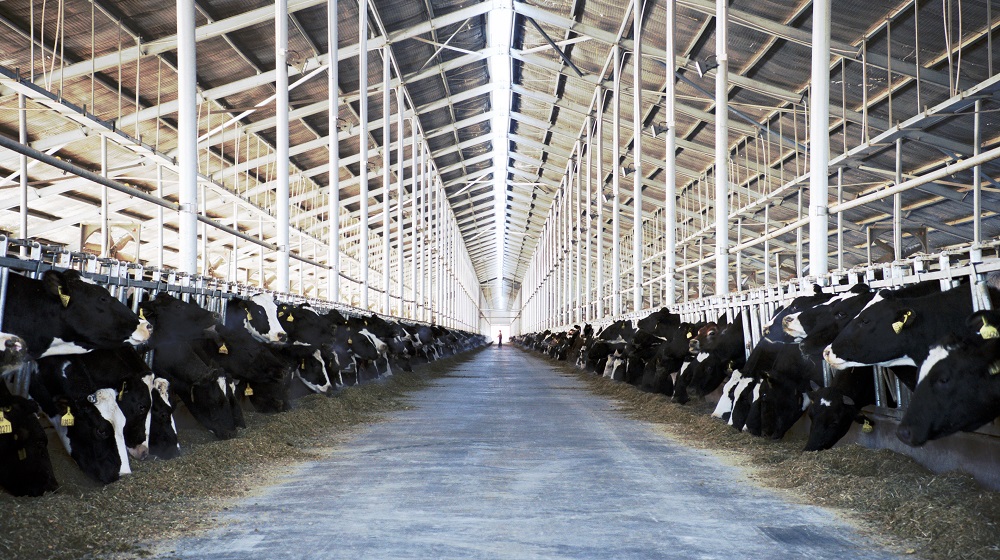Alimentum
Frontera invisible
A documentary by Nico Muzi and Nicolás Richat
Audiovisuals
Free
Frontera Invisible forms part of Alimentum, a cycle of documentaries and debates to analyse the impact on our food of the effects of climate change, the repercussions of economic policies applied to food production, and food production and its environmental impact.
18.30 Screening
FRONTERA INVISIBLE, Nico Muzi and Nicolás Richat, Argentina and Belgium, 2016, 28’, in Spanish
Made in Colombia, Frontera Invisible recounts the phenomenon of land grabbing prompted by the palm oil industry and its repercussions on the armed conflict in that country.
Palm oil production has been widely denounced due to its environmental consequences in many places on the planet and its effects on health in diets dependent on industrial foodstuffs. As this documentary reveals, however, there is another serious and less known side.
Part environmental documentary, part social investigation with the testimony of the victims, Frontera Invisible gives a voice to the local communities displaced during the 60 years of armed conflict in Colombia. Thousands and thousands of families who are struggling to reclaim their land clearly illustrate the relation between the years of war and the country’s extractivist policies that have made Colombia one of the great exporters of palm oil, fundamentally used not for the food industry but to be turned into a “green” fuel to feed the petrol tanks of Europe’s cars.
Last year, a peace treaty was signed in Colombia between the government and the FARC, but why did the population initially vote against the agreement? Could it be anything to do with the power of an oligarchy that has taken over the most fertile land in the country?
A LA MEMÓRIA DE HERNÁN BEDOYA, Nico Muzi and Nicolás Richat, Argentina and Belgium, 2017, 3’52”
Short film in tribute to Hernán Bedoya, Colombian community leader and human rights activist who was shot dead last 8 December in the collective territory of Pedeguita and Mancilla, Municipality of Riosucio (Chocó), where he created the Humanitarian and Biodiversity Zone “Mi Tierra”.
Hernán returned to his land with his family (and a group of families) in 2012 after being displaced by paramilitary groups in 1996. Since 2012 he had fought to claim back his land, denouncing palm oil, banana and rancher companies in Pedeguita and Mancilla for illegal land grabbing and deforestation. Since 2015 Hernán had received numerous threats on his life, which were reported to the Colombian State authorities. He was reportedly killed by the neo-paramilitary group Autodefensas Gaitanisas de Colombia. Hernán generously gave testimony for Transport & Environment’s award-winning documentary Frontera Invisible.
About the documentary-makers:
Nicolas Richat worked for the Argentine channel Ciudad Abierta. In 2008, he started to work freelance for television, film and advertising. From 2010 to 2012 he returned to Ciudad Abierta as art director, focusing on the recovery of the visual identity of the only public channel in the city of Buenos Aires. In those two years, he created over 120 hours of television content, 15 series, 132 episodes of programmes and 446 micro-programmes.
Nico Muzi is communication director at Transport & Environment, Europe’s leading NGO in the struggle for cleaner transport and fuel. An untiring storyteller, Nico is a writer and audiovisual producer, though Frontera Invisible is his first incursion into the world of the documentary. He has devoted himself to communication about biofuels since 2010 when he was a consultant at global PR firm Weber Shandwick. Since joining Transport & Environment, Nico has focused on publicising the social and environmental impacts of biofuel.
19.15 Debate
The following debate will include the participation by video conference of Nico Muzi (author of the documentary and communication director of Transport & Environment, Europe’s leading NGO in the fight for cleaner transport and fuel), and in person of two members of the Taula per Colòmbia (http://www.taulacolombia.org) and Gustavo Duch, coordinator of Soberanía Alimentaria magazine.
Participants in the Taula per Colòmbia:
Silvia Irene Berrocal, human rights defender in Apartadó (Department of Antioquia), member of the Fundación Forjando Futuros, a body that works to provide support to victims of the conflict surrounding the restoration of land. Sílvia is currently in Barcelona working with Intermón Oxfam in the framework of the Catalan Programme of Protection of Human Rights Defenders of the Government of Catalonia. She is a first-hand witness of the problems of land claimants and restitution.
Harrison Cuero, ecologist, specialist in environmental law. Colombian, member of the PCN-Black Communities Process. He has over 20 years’ experience in accompanying Colombia’s black communities in the defence of ethnic rights. He is currently an international consultant in the promotion and defence of human collective and environmental rights.
Next Alimentum session:
Friday 23 March, More than Honey, Markus Imhoof, Switzerland/Germany and Austria, 2012.
This activity is part of Alimentum



